Fiercely anti-union Schultz stands down two weeks early having agreed to appear before Senate labor panel next week
Get Started for FREE
Sign up with Facebook Sign up with X
I don't have a Facebook or a X account

 Your new post is loading... Your new post is loading...
 Your new post is loading... Your new post is loading...
The chain’s mutual model was once hailed as a template, but now it needs cash amid hefty losses
Graham Watson's insight:
A detailed analysis in the Guardian of the current state of play regarding John Lewis, with the prevailing view seemingly that the company, like many, faces challenging times but different views about how to tackle this.
For many analysts, it seems that the group have rather lost sight of its core business and the move to end staff ownership might damage both staff morale, the brand and remove its USP. However, it's clear that it's in a bind - however, the notion that the company wants to "expand into financial services and build to rent above Waitrose stores", strikes me as singularly unimaginative and redolent of a business in decline.
Watch this space - and see how this story is going to unfold in the months ahead.
Toblerone is to remove the Matterhorn mountain peak from its packaging when some of the chocolate's production is moved from Switzerland to Slovakia.
Graham Watson's insight:
An interesting story about offshoring and the implications of this for the Toblerone brand, as they are no longer able to use the Matterhorn image on its packaging.
The UK chain’s thrifty founding family would never have run it this way. Now, with high debts and falling profits, signs look grim
Graham Watson's insight:
Just the very best sort of article for Business Management students, with the Guardian looking at the fate of Morrisons since it was taken over by the giant US private equity firm Clayton, Dubilier & Rice (CD&R) for £7bn.
It looks at a range of issues: the marketing mix, brand perception, the way in which the deal was originally financed and the implications of all of this for Morrison's performance, perhaps most obviously in relation to its declining market share.
Or course, the counter-factual is that the company could have gone in this direction irrespective of its new owners, but it's a fascinating look at how organisational cultures can collide.
The firm says its Punk IPA and other beers will be brewed in the country by the end of next month.
Graham Watson's insight:
A lovely Business Management Monday morning starter for 10, with the news that BrewDog are entering the Chinese market, having partnered with Budweiser China. Classic application of the Ansoff Matrix by 8 o'clock, anyone?
It's also interesting to note that this isn't being universally approved of - not least in the present geopolitical environment - and others are pointing the incongruity of supposed 'punk' BrewDog partnering with Budweiser.
DX Group confirms a rival company has accused it of offering its staff bribes to get information.
Graham Watson's insight:
Espionage in the market for courier services with firm DX Group having been accused by a rival, Tuffnells Parcel Express accusing it of having offered bribes to gain access to confidential corporate data.
Is this sort of behaviour ethical? Will it have any effect upon the brand or reputation of DX Group? I'm not sure that it will have much of an effect in a much maligned sector.
Non-profit group Global Witness urges US regulator to investigate oil giant and potentially impose fines over apparent ‘mislabeling’
Graham Watson's insight:
Perish the thought that Shell should be greenwashing on the back of its report of record profits, how ever non-profit group Global Witness argue that far from the stated 12% of capital investment in renewables claimed on the company's website, the real figure is nearer to 1.5%. Who would have guessed? 
Graham Watson's curator insight,
February 2, 2023 8:39 AM
Perish the thought that Shell should be greenwashing on the back of its report of record profits, how ever non-profit group Global Witness argue that far from the stated 12% of capital investment in renewables claimed on the company's website, the real figure is nearer to 1.5%. Who would have guessed?
The global burger chain did not confirm details about the scope of the cuts it is planning.
Graham Watson's insight:
This could go on lots of boards - but I've put it here, in that it's a nice case study of a well-established brand having to manage change in a sensitive fashion. Given the global nature of McDonalds, and the ethical implications of job cuts, it's a CUEGIS dream.
It has been a tough year with more challenges to come, but some retailers are proving the fittest can survive.
Graham Watson's insight:
How do you survive on the High Street in the current business environment? This BBC article looks at Flannels, Monsoon and Mark & Spencer, all of which are still opening new stores.
It's an interesting read, and highlights how every store needs to find its own value proposition in order to survive.
Car showrooms, mostly owned by independent businesses, are under pressure from all sides.
Graham Watson's insight:
An example of change in action, with this BBC article looking at the future for car dealerships, suggesting that new models of buying cars and the banning of new petrol and diesel car sales from 2030, meaning that staff will require retaining, and, in all probability, there will be fewer of them.
Furthermore, instead of making an average profit of 7% per car, the dealerships are being squeezed by car manufacturers, with some - notably Audi and DS - looking to set-up their own directly-owned showrooms.
However, existing dealers are confident that there is a still going to be a place for them in any future market.
The controversial brewer is told an advert for its fruit beers could mislead consumers.
Graham Watson's insight:
You can't say that BrewDog doesn't believe in sailing close to the wind - not only was it's anti-sponsorship of the World Cup badly received but it has had another advertising campaign - launched via e-mail - banned for intimating that drinking a 'fruit' beer would count as one of your five-a-day.
Interestingly though, can you argue that even with the ban, the marketing campaign has succeeded? It's another instance where the firm's name is in the media and if the average consumer is suitably 'punk' then this sort of edgy behaviour might appeal to them.
The Swiss-based mining firm strikes a deal with DR Congo to settle corruption claims.
Graham Watson's insight:
Fans of the ethics of mining companies are likely to be unsurprised by the news that Glencore has been fined - again - for a series of corruption cases in the Democratic Republic of Congo. The latest fine pushes this year's fines to $1.6bn
And then there's the kicker - as the article notes - "Despite the fines Glencore is expected to make record profits of around $3.2bn this year.." So, from Glencore's perspective, the marginal principle might suggest that they continue with their corrupt practices.
Status lost after BBC film and open letter from workers alleging ‘culture of fear’ at self-styled ‘punk brewery’
Graham Watson's insight:
Id never come across B Corp status before, however, it seems that it's an ethical standard that has been formulated by an organisation called B Lab. And now BrewDog have lost this status in the aftermath of BBC coverage of the business and an open letter from some of its employees criticising the organisational culture of the business.
Will it adversely affect the brand? I'm not convinced the average beer consumer will be overly bothered. |
Yes, its customers could buy cheaper beans or bras elsewhere. But there’s a trust tied up in its ownership structure which is now under threat, says Gemma Goldfingle, editor of Retail Gazette
Graham Watson's insight:
And here's an assessment of the organisational culture of the John Lewis Partnership, with the editor of Retail Gazette identifying it as the key feature of the organisation's identity, and arguing that diluting this is going to have an adverse effect on both productivity and, potentially, revenues.
As she notes, the founder's aim was "not to maximise profits but to generate “sufficient” profit for its purpose" and anything that deviates from that runs the risk of destroying the brand.
The chain's famous staff-ownership structure could be watered down to raise new funds.
Graham Watson's insight:
The John Lewis Partnership is thinking of changing its much vaunted staff-ownership model. The potential plan, apparently the brainchild of the Chair, Dame Sharon White, is to seek funding for a majority stake to invest in data analysis and Waitrose's supply chain.
It's not guaranteed to take place but the firm are looking for £2bn, although ditching 70 years of history, and the brand image associated with it, might have adverse effects for the business too. You never know perhaps reducing executive pay over the preceding 20 years might have helped...
Financial woes, cost of living crisis and tougher competition are among problems that have led to expected second ever full-year loss
Graham Watson's insight:
There's quite an easy answer to this - income elasticity of demand, for economists - but for Business Management students, the underlying issues are perhaps more interesting.
This is worth a read.
The world's biggest coffee chain entered the Italian market in 2018 and has around 20 stores in the country.
Graham Watson's insight:
Another lovely example of product development - and an application of the Ansoff Matrix, as Starbucks have launched a new range of products, olive oil infused coffees, initially in the Italian market.
Starbucks only has 20 stores in Italy, an economy with a cafe culture based on independent, family-owned cafes, and has found it difficult to establish itself.
The company is facing rising costs and increasing competition from rival fast food companies.
Graham Watson's insight:
Some interesting Business Management material here, with sandwich chain, Subway looking to sell the business. You might start by asking pupils what type of business it is? I doubt many will know that it's a family business.
Thereafter, you might think about the reasons for looking to sell the business - yes, costs are higher but is it a classic case of the owners looking for an out before the product life cycle starts to take effect. I wonder if, unlike classic fast food options, like McDonalds, Subway's products and brand isn't strong enough to become an enduring feature of the market.
For those of us of a certain age, the name Spud-u-like, might spring to mind.
Once a basic ingredient of cheap meals, posher versions have achieved TikTok stardom, and I’m beginning to see why, says food writer Thea Everett
Graham Watson's insight:
A lovely example of the importance of marketing in getting a product flying off the shelf, the apparent rise in popularity of tinned fish can be attributed to many things, not least skilful marketing strategies - and you might use the 4Ps to analyse this as well as thinking about how social media has amplified this trend.
However, I would also add that there are other factors in play - the changing macroeconomic environment and, perhaps, the fact that more 'exotic' forms of tinned fish have been a discount store - i.e. Lidl and Aldi - staple and their popularity might have been picked up on by more upmarket retailers.
‘Subvertisers’ hijack 400 posters in Belgium, France, Germany and the UK to satirise what they claim are misleading ads by carmakers
Graham Watson's insight:
A nice bit of hijacking corporate marketing with a group of subvertisers putting up 400 alternative marketing campaigns, calling into question the environmental credentials of Toyota and BMW and highlighting the environmental costs of their SUVs.
UK company makes decision because of growing tensions between Beijing and the island
Graham Watson's insight:
Brompton have shortened their supply chain in the wake of increasing tension between China and Taiwan, This is a complex operation, but they are trying to encourage existing suppliers to use production facilities in other locations, and further complicated by the fact that China is the world's largest market for the folding bike company.
It takes a staff of 2,400 people working day and night to keep Royal Caribbean's Symphony of the Seas sailing. From tiny cruise-ship kitchens, chefs whip up 30,000 meals a day. All waste onboard is dealt with in secret, crew-only areas of the ship. And the engine room and captain's bridge work together to power and move the floating city. We go below deck on one of the world's largest cruise ships.
Graham Watson's insight:
This is just an interesting clip for Business Management students: it costs $1million per day to run Royal Caribbean's Symphony of the Sea, a boat with 6,000 passengers per week, with a crew of 2,400 staff.
How is this achieved? It's the relentless pursuit of efficiency, with 30,000 meals produced every day in small kitchen, all waste disposed of, and the ship kept afloat.
It's a fascinating illustration of everything from ship design and touches on all elements of Business Management.
The global brewing giants highlight a brand's nationality but does it matter when they brew it overseas?
Graham Watson's insight:
This article about the nature of global brewing, and the production of 'foreign' beer in the UK, for the British market. Does it really matter where a beer is brewed?
For some people it does, with Czech brewers, Budweiser Budvar, only brewing in its home town of Budweis, and arguing that this gives its beer a unique taste, and authenticity.
Contrast this with other beers, notably relative newcomer, Molson Coor's "Madri Excepcional", a Spanish style lager, brewed in Yorkshire in league with joint venture partner, La Sagra Brewery.
So why have such beers become so popular? The answer is in the branding which imbues them with 'sophistication' in the eyes of the average drinker, apparently.
Supermarket hopes to grab bigger share of burgeoning sector, possibly threatening Sainsbury’s second position
Graham Watson's insight:
I've put this here, rather than on my Microeconomic board in the hope that some of my Business Management students might want to read it. It's a lovely example of how firms in the supermarket sector are looking for new ways to compete, although I wonder whether the ill-fated rollout of Tesco's Jacks brand might also apply in this instance.
Is Asda likely to be successful in the convenience store market, or will it, as Tesco's attempt did, result in damage to its brand image.
The injury rate at Amazon fulfillment centers is double that of other warehouses. We accessed rare video footage from inside one of the most dangerous Amazon warehouses in the US, and spoke to former employees, to understand the true cost of Amazon's push for speed.
Graham Watson's insight:
A remarkable clip looking at Amazon's fulfillment centres, looking at working conditions and the high risk of repetitive strain injuries with research suggesting that Amazon's employees are twice as likely to be injured than colleagues working in other companies' warehouses.
Something to think about with regard to business ethics, and in a CUEGIS context. |






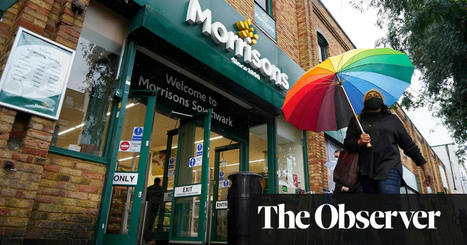
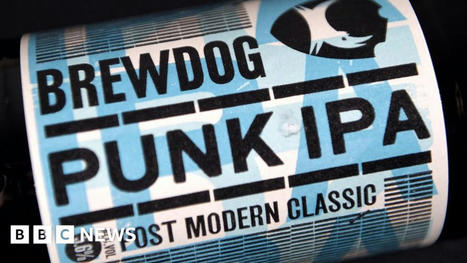

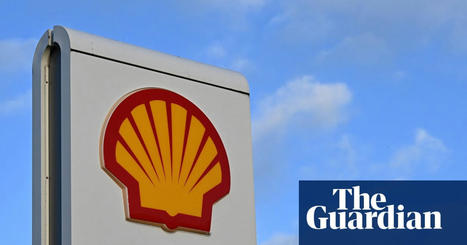





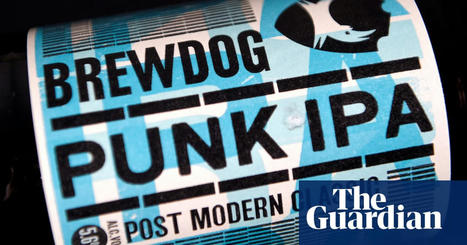
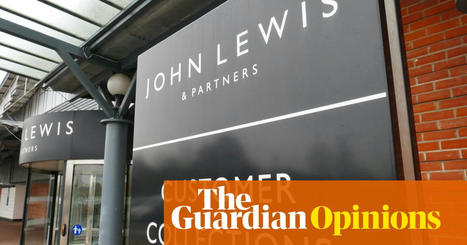
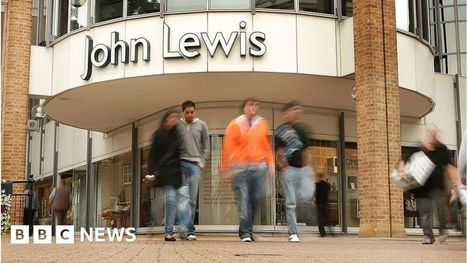
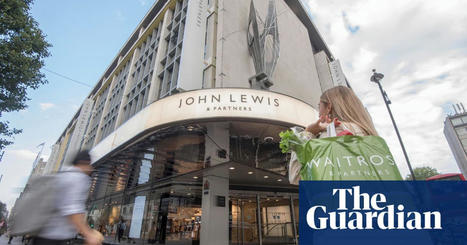

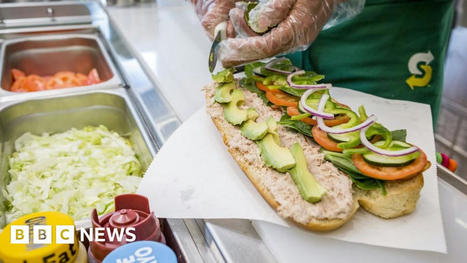
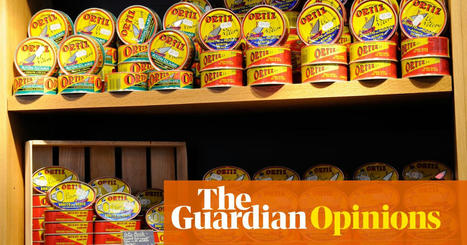
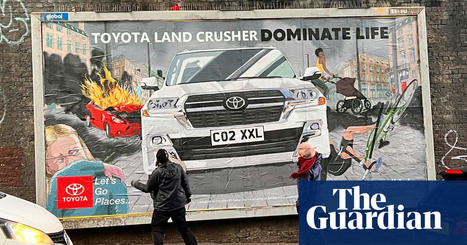
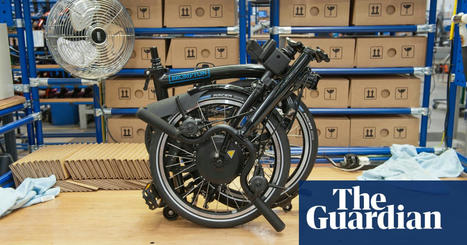

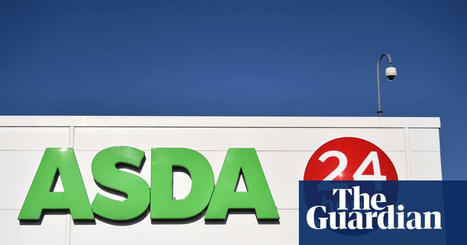





Another Business Management story today with the news that Starbucks founder, Howard Schulz, is standing down as the company CEO, a role he's filled on three occasions.
IN this case, it seems that the Starbuck's boss is going to face scrutiny of the company's working practices, not least its industrial relations and the seemingly antagonistic position that it's adopted in relation to trade unions. It raises one or two questions about corporate ethics...